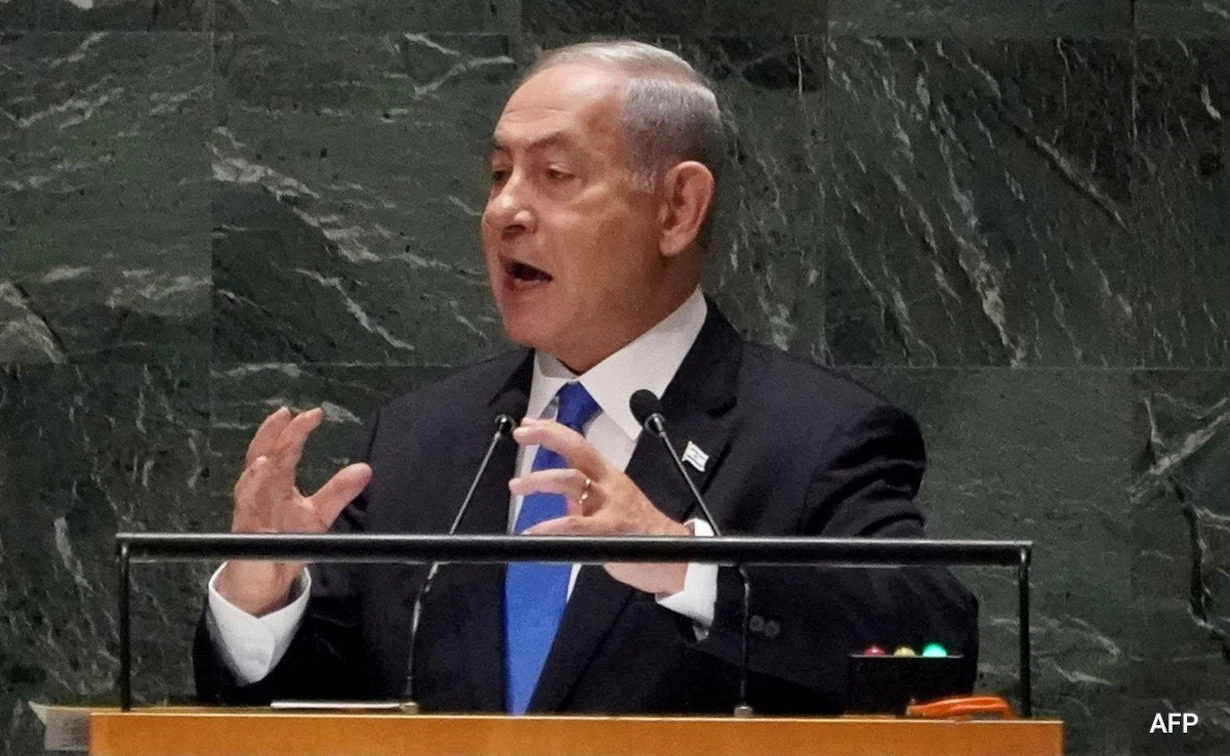The Prime Minister of Israel, Benjamin Netanyahu has praised the recent so-called ‘normalisation’ deals between Israel and Arab states, maintaining that Palestinians must not be allowed to have ‘veto’ over such agreements.
Speaking to the UN General Assembly on Friday, Israeli Prime Minister Benjamin Netanyahu praised the potential for formal ties between Israel and Saudi Arabia while highlighting the role played by the US in efforts to mediate a deal between the two nations.
The Israeli prime minister also denounced the Iranian leadership and urged other nations to act more firmly against Teheran.
Netanyahu outlined what he called his vision for “peace” in the Middle East, in which Arab states would embrace Israel regardless of the Palestinian issue.
“I’ve long sought to make peace with the Palestinians. But I also believe that we must not give the Palestinians a veto over new peace treaties with Arab states,” he said.
Read Also: Mass Protests Rocks Israel After Netanyahu Sacked Minister
“The Palestinians could greatly benefit from a broader peace. They should be part of that process, but they should not have a veto over the process.”
Sudan also agreed to join the normalisation deals, formally known as the Abraham Accords.
Africa Today News, New York reports that previously, much of the region had conditioned recognition of Israel on establishing a viable Palestinian state with East Jerusalem as its capital, as articulated in the Arab Peace Initiative.
That plan also calls for finding a just solution to the plight of Palestinian refugees.
Despite his claims of pushing for peace with Palestinians, Netanyahu held up two maps of the Middle East with Israel highlighted in blue.
Both maps showed the occupied Palestinian territories – the West Bank and Gaza – as well as Syria’s occupied Golan Heights as being part of Israel.
The Israeli prime minister, who has a history of using props and red markers at the UNGA, employed the maps to emphasise Israel’s growing relations with neighbouring Arab countries.

